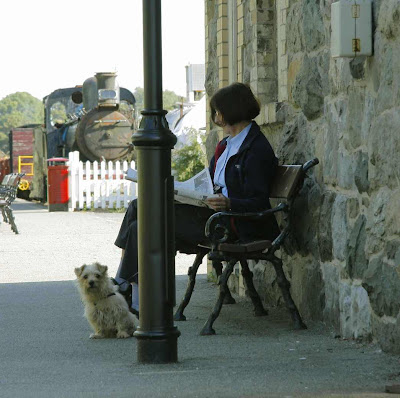For anybody who suffers from M.E. (also known as chronic fatigue syndrome)or knows somebody who does BBC Radio 4 magazine programme, You and Yours broadcast a series of programs on the subject. You can listen to the audio and there are also full transcripts. Here is David Puttnam (now Lord Puttnam) the film producer talking about the onset of ME.
I’d just come back from a trip to the Far East, I was at Columbia Pictures at the time, and I got – I’d only been back I think a day, day and a half – and I suddenly came up with this tremendous fever, it was extraordinary. And the doctors first of all – first of all being tested for Dengue Fever. I just remember dragging myself into bed and then for about a week – and this is not an exaggeration to say – when I needed to go to the loo it was literally like climbing Everest, I was – by the time I’d climbed back into the bed, been to the loo, I was covered in sweat and utterly exhausted, I was sort of dragging myself across the room. David Puttnam on You and Yours, BBC Radio 4
While still a novice monk at Shasta Abbey I came back to England on a ‘family visit. It was 1986 and I remember distinctly reading an article about M.E. in the Sunday paper. At that time this crippling condition was not well known about, in fact it was still being called the Royal Free disease. So named after an outbreak of a strange disease at the Royal Free Hospital in London in 1955. There was much speculation, as there still is, about this condition being all being in the mind. As a fledgling priest I predicted I’d be counselling people while on their journey to get a diagnosis for their unrelenting, and strange, symptoms.
As it has turned out, over the years, I’ve had quite a lot to do with people suffering from M.E. I’ve a great sympathy for the mental/emotional suffering, as well as the physical conditions that these people live with, day in and day out. Come to think of it I even diagnose somebody as I was driving from Throssel to catch a train. We were chatting back and forth about his health and I just said, Hum, had you thought this might be M.E.? Turned out it was, sad to say.

